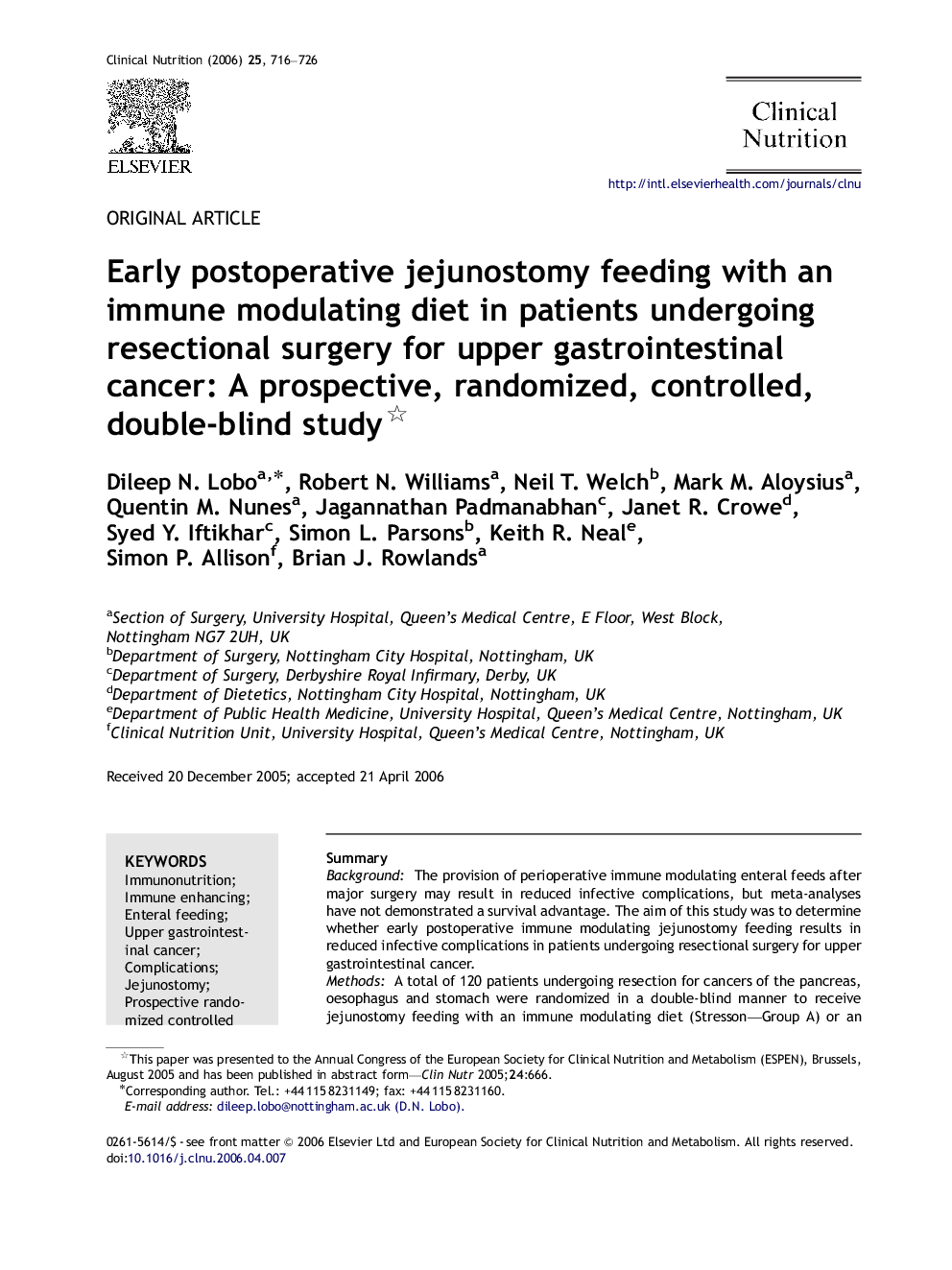| Article ID | Journal | Published Year | Pages | File Type |
|---|---|---|---|---|
| 2690022 | Clinical Nutrition | 2006 | 11 Pages |
SummaryBackgroundThe provision of perioperative immune modulating enteral feeds after major surgery may result in reduced infective complications, but meta-analyses have not demonstrated a survival advantage. The aim of this study was to determine whether early postoperative immune modulating jejunostomy feeding results in reduced infective complications in patients undergoing resectional surgery for upper gastrointestinal cancer.MethodsA total of 120 patients undergoing resection for cancers of the pancreas, oesophagus and stomach were randomized in a double-blind manner to receive jejunostomy feeding with an immune modulating diet (Stresson—Group A) or an isonitrogenous, isocaloric feed (1250 Calories and 75 g protein/l—Nutrison High Protein—Group B) for 10–15 days. Feeding was commenced 4 h postoperatively and continued for 20 h/day. The target volume (ml/h) was 25 on day 0, 50 on day 1, and 75 thereafter. Outcome measures included complications, hospital stay and mortality.ResultsA total of 108 patients (54 in each group) were analysed. Feed delivery, although less than targeted, was similar in both groups. There were 6 (11%) deaths in each group. Median (IQR) postoperative hospital stay was 14.5 (12–23) days in Group A and 17.5 (13–23) days in Group B (P=0.48P=0.48). A total of 24 (44%) patients in each group had infective complications (P=1.0P=1.0). A total of 21 (39%) patients in Group A and 28 (52%) in Group B had non-infective complications (P=0.18P=0.18). Jejunostomy-related complications occurred in 26 (48%) patients in Group A and 30 (56%) in Group B (P=0.3P=0.3).ConclusionEarly postoperative feeding with an immune modulating diet conferred no outcome advantage when compared with a standard feed.
